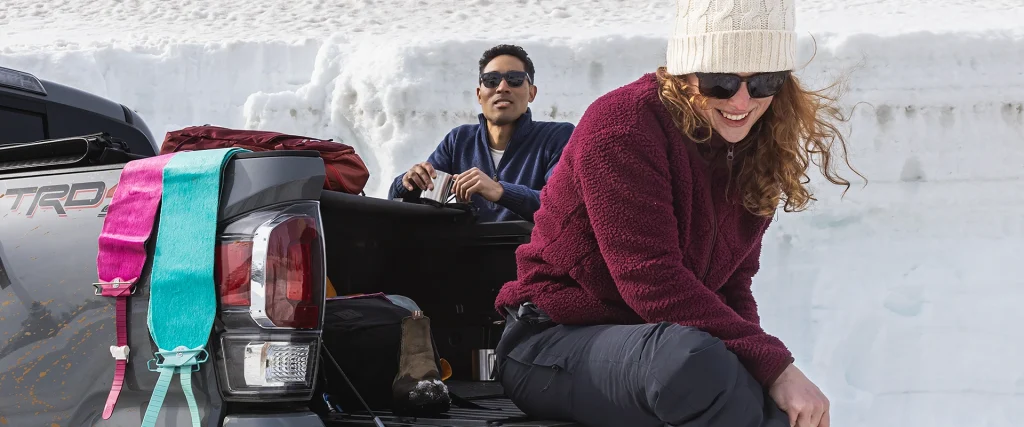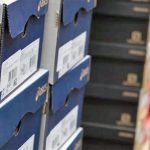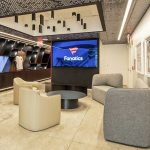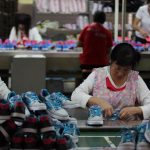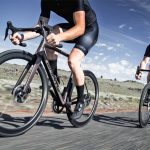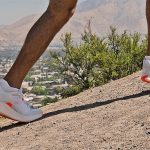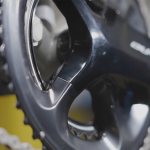Fenix Outdoor International, parent company of the Fjällräven, Royal Robbins, Hanwag and Tierra brands, reported that its third-quarter started well for the company, with “nice growth” in its Retail businesses; the Brands and Wholesale businesses had recovered, and direct orders increased after the low demand in Q2 due to high inventory levels. The start, combined with an over-expectation performance in the supply chain, meant the company could deliver to retailers earlier and more efficiently than it normally would.
Then September arrived with extreme heat in Europe. The company suffered as many of its products sold in September are based on colder weather. Fenix said the demand, both from the company’s retail as well as from the company’s retail customers, “slowed down heavily.”
The company’s total sales ended up at €223.0 million ($ 241.2 mm) for the third quarter, compared to €224.2 million ($236.1 mm) in the year-ago quarter.
Group operating profit was €37.4 million ($40.4 mm) in Q3, compared to €42.8 million ($45.1 mm) in Q3 last year, a decrease of 12.6 percent year-over-year (YoY). In addition to the impact of the lower sales on profitability, the profit in Frilufts was also said to be negatively affected by a “generally lower gross margin and price pressure due to the excess inventory in the market” as well as by a €1.3 million write-off in inventory value within the Brands segment. The high physical inventory volumes also meant €0.6 million in higher costs in the logistics operation.
Net income was €27.8 million ($30.1 mm) for the third quarter, or €2.08 ($2.25) per share, compared to €33.0 million ($34.8 mm) in Q3 last year, or €2.48 ($2.61 mm) per share for the period
The company ended the quarter to €288.2 million ($305.3 mm) in inventory, a 21 percent increase compared to €237.4 million ($231.4 mm) in inventory on September 30, 2022.
Frilufts
The Frilufts segment grew 4 percent to €104.1 million ($112.8 mm) in Q3 from €96.7 million ($101.8 mm) in Q3 last year, “primarily driven by Globetrotter in Germany and Naturkompaniet in Sweden.” The only markets that did not grow were said to be Finland and the UK. Besides the warm/hot weather in September, the company said it believes that sales were negatively affected by consumers traveling more.
Segment operating profit was down to €4.4 million ($4.8 mm) in Q3 from €6.7 million ($7.1 mm) in Q3 last year “due to the price pressure in the market as well as the increase in rents and salaries due to inflation.”
Brands
Brands segment sales decreased 4 percent to €59.8 million($64.7 mm) in the third quarter from €62.2 million ($65.5 mm) in the prior-year comparable quarter. The company said the decrease can be explained by the Primus being sold, meaning around €1.0 million in lost sales. Fenix also said Hanwag is “still facing a general downturn in the market for heavy boots, which saw great growth during Covid” and “generally low re-orders in September due to the warm/hot weather.”
Segment operating profit decreased from €27.1 million ($28.5 mm) in the year-ago quarter to €19.1 million ($ 20.7 mm) in Q3 this year. In addition to the decrease in external sales, the company said the operating profit decrease is explained by “lower gross margins, a higher fixed cost base, as well as higher logistic costs due to the physically high inventories.” The internal sales were also said to lower the effects on Brands.
Global Sales
Global Sales segment sales decreased 2.9 percent to €63.3 million ($68.5 mm) in the quarter from €65.2 million ($68.7 mm) in the corresponding quarter last year. Fenix said it is showing growth in Asia Pacific with an 8 percent increase in the period. The Chinese JV showed continued growth and is now said to be “back on 2019 numbers.” Fenix also said it grew over 10 percent in North America despite the volatility of the market. Canada is reportedly showing even more growth as the company said it has been able to solve last year’s supply chain and logistical problem. The Global Sales decrease in the quarter was said to be due to the hot September weather in Europe, slowing down sales the last month.
Segment operating profit decreased from €15.4 million ($16.2 mm) in Q3 last year to €13.8 million ($14.9 mm) in Q3 2023. In addition to the decrease in sales, Fenix said there was also “a slightly higher cost base.”
North America
North America top-line growth was said to be “okay”; however, due to the change of products, Fenix said it is now selling a much more diversified portfolio of products. This portfolio does not have the same margin as the historical portfolio, and it is negatively affecting the gross margin. In combination with a need to invest in the organization to handle that, Fenix sees a short-term decrease in operational results for the segment.
“We have also reached a point where we are refining the company’s retail operations, both from an operational perspective as well as from an investment,” the company stated in its Q3 report. “We will probably close a few shops next year at the same time as opening a few new [stores].”
Common
The smaller loss in the Common areas of the business was explained by several components. The reservation for internal profits in stock (sales from Brands, in some cases through Global Sales to the company’s retail network) was lower than the year before; this apparently then meant that the profit for the period, which was realized in internal margin on the inventory sold through the company’s internal brands, was partly realized in the Common segment instead of in Global Sales or Brands.
Furthermore, the company said many internal services are performed in Sweden when invoiced internally. It, therefore, gained from the weak Swedish Krona. In some areas, the company has also fine-tuned the company’s model of allocating internal costs.
Digital
The company reported that the very volatile situation during the Covid period has now stabilized. Year-to-date online sales now represent 18 percent of total sales, which was “lower than during the peak Covid period, but well above the pre-COVID period.”
Looking Ahead
Chairman of the Board Martin Nordin said in the Q3 report that the effects from the warm weather in September have partially continued into October.
“There has, however, been some improvement, especially on the retail side (Frilufts),” Nordin shared. “Once it got colder, retail sales in Sweden improved, and as colder and worse the weather has been, the more it has improved. In Germany, it has also improved, but in mid-layers and lighter jackets. Based on that, there is an improvement there, but the question is, is it too late?
Nordin said the risk is that a lot of discounting will start, and there are some indications of this happening.
“So, I refrain from making any predictions (guess) for Q4,” he said. “In my view, it is likely that the company’s industries grew during COVID, which created a temporary demand in the company’s industry. This is supported in the sales in the company’s Frilufts segment, such as the general higher sales of heavy hiking boots, tents, and certain types of backpacks, e.g., more specialized and technical items that have a lower purchase intensity. These categories have seen a significant decrease in sales. This means that expecting large industry growth right now is a bit too optimistic.”
Nording said the company has also seen new digital and other players enter the market believing in this growth, “but without having the core identity, many focusing on price.”
“We have put the company’s focus on CSR, believing that this is right,” he shared. “This means that we do not manufacture in many countries where other people do. We source materials that are recycled, for instance, and without PFCs. We make the company’s products so that they will last long. We do all that because we believe it is right. We spend a lot of time and money also on controlling that the suppliers fulfill the company’s requirements (we are not perfect, and we do make mistakes). All that means we pay more for labor, material and control than many others. Given this focus, we have a stronger push upwards on the cost of goods sold in comparison to many of the company’s competitors. We believe the company’s control processes put us at a competitive advantage when the legal requirements we see are coming, comes in place. That if the politicians do as they do in the EU, for instance.
“What we traditionally have not done is to spend money on marketing this. We have acted too passively in many of the company’s markets, e.g., Germany and the U.S. We have now started that because it has become obvious that also we need to start playing this instrument if we want to capitalize on this advantage. So, we need to spend more money on marketing to explain to the consumers what we stand for. This means we might overspend on marketing in these markets given how marketing costs today.”
In looking at other actions in the future, Nordin said the company’s inventory is too high currently, as he had earlier predicted.
“Due to the volatility of sales this year, it will take us slightly longer to adjust it all the way down to the right level,” he said. “We are now, as I predicted, at a point where the inventory should decrease on a quarterly like-for-like basis, and we have now set tougher targets for the company’s different business units to achieve in terms of inventory levels. On the positive side, we are now live with the first stage of our warehouse automatization project in Ludwigslust, Germany, and will gradually implement it over the next six to twelve months. This will save us up to €4 million annually.
“We currently have three different ERP systems,” he continued. “This means that in the changing IT environment our running costs have increased very much. We have now focused much of our resources in the first stage, changing and aligning the Global Sales and Brands segments into a new ERP system. This project has already started and we are expecting that this, in the end, will increase our efficiency quite substantially. We have also made some organizational changes to improve efficacy as well as adjusting the company’s spending in many areas. In Frilufts, we have negotiated many rental contracts, achieving approximately 2 million lower rents next year.”
Nordin concluded, “Given how the Society looks today, it is, however, very likely something else will come and change what is happening.”
Editor’s Note: All euro to USD conversions are based on FX Rates provided by the company.
Photo courtesy Royal Robbins

